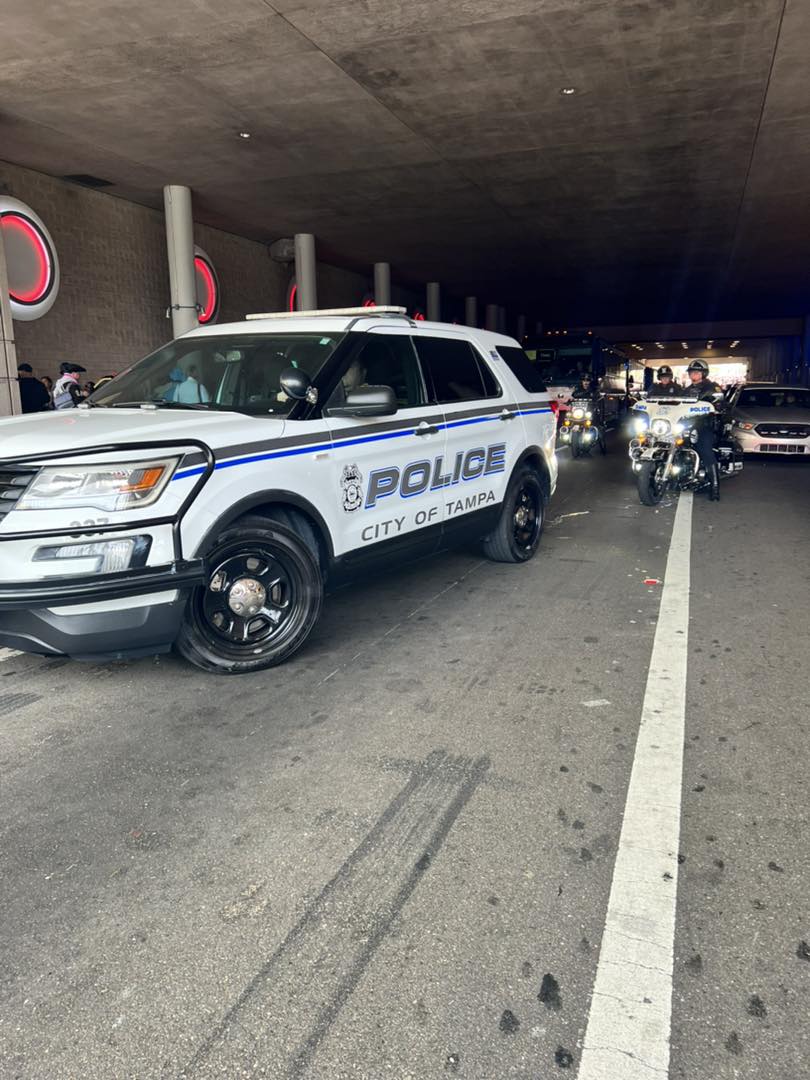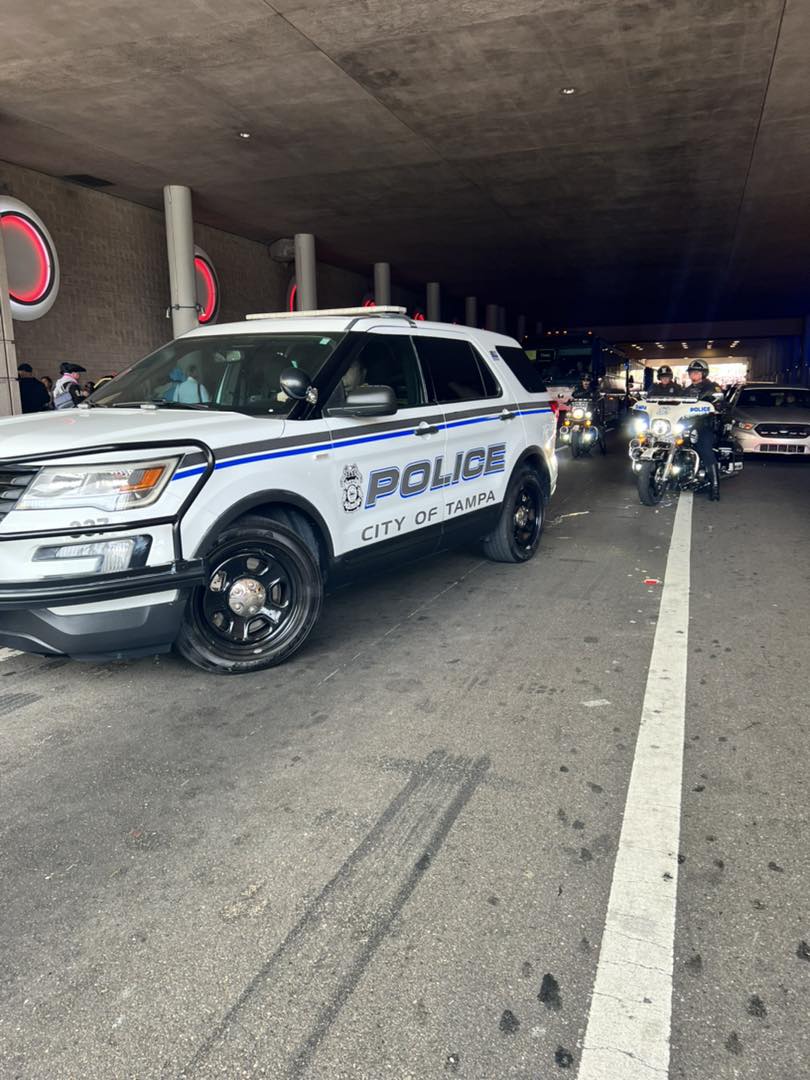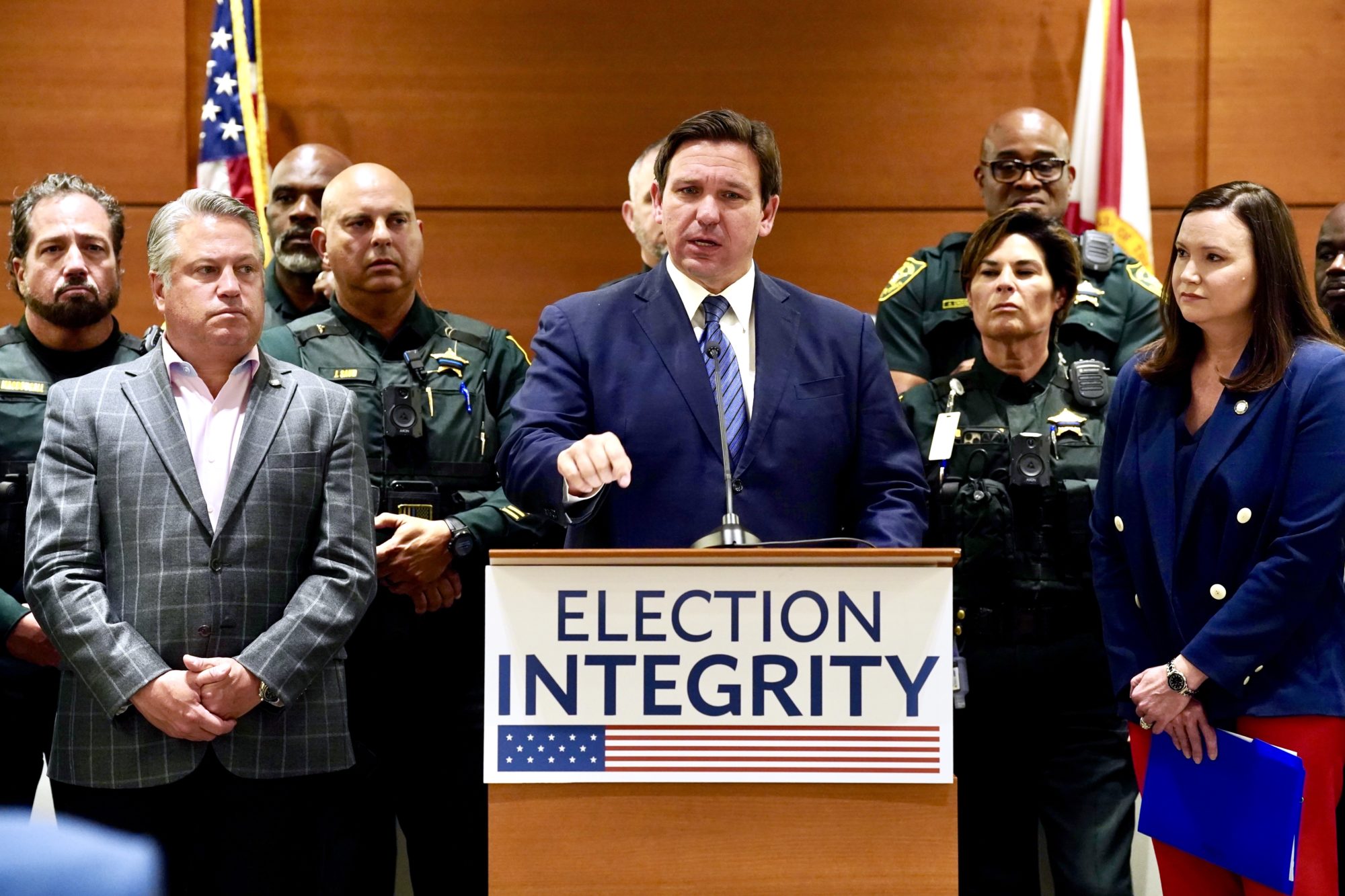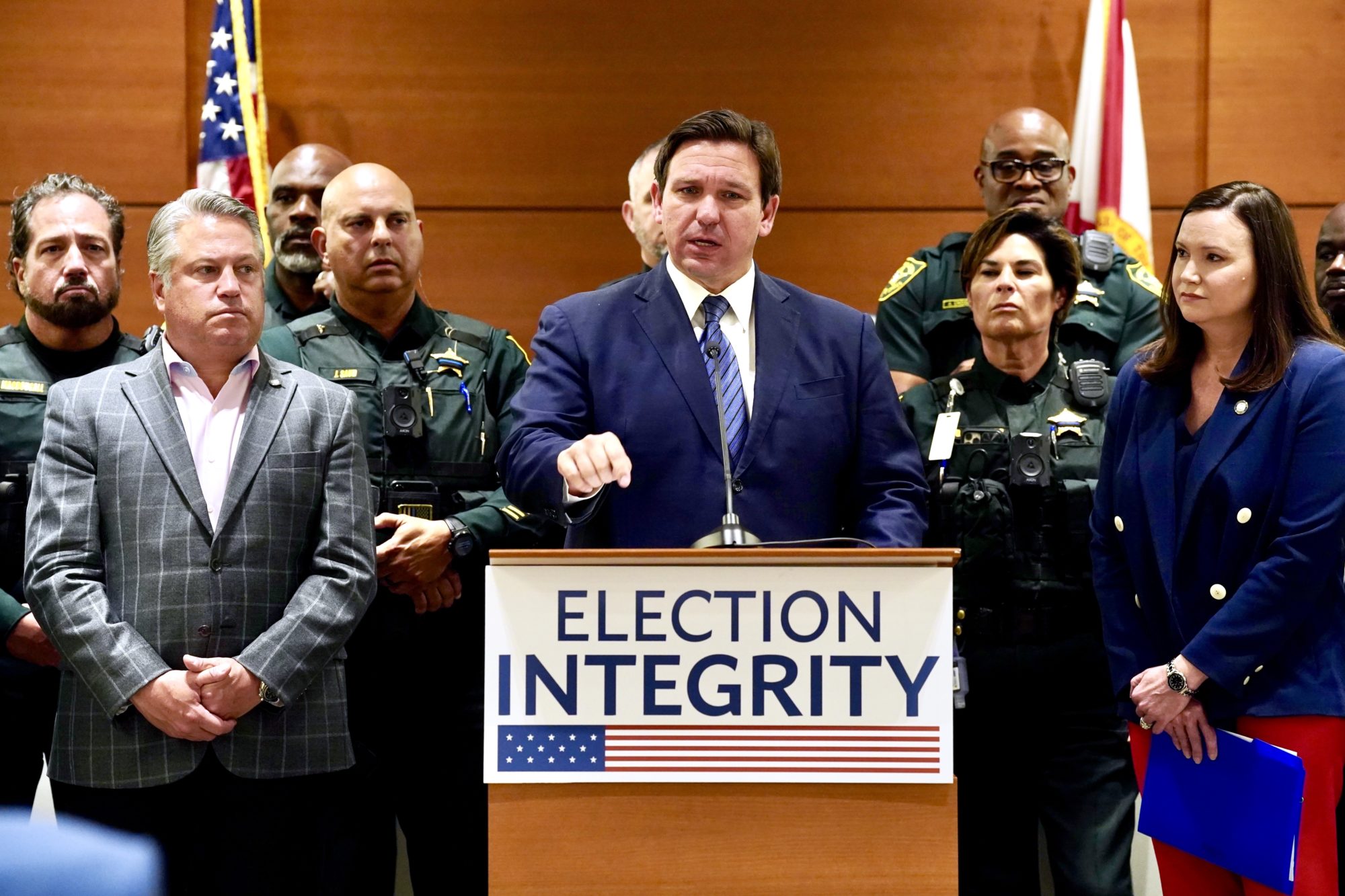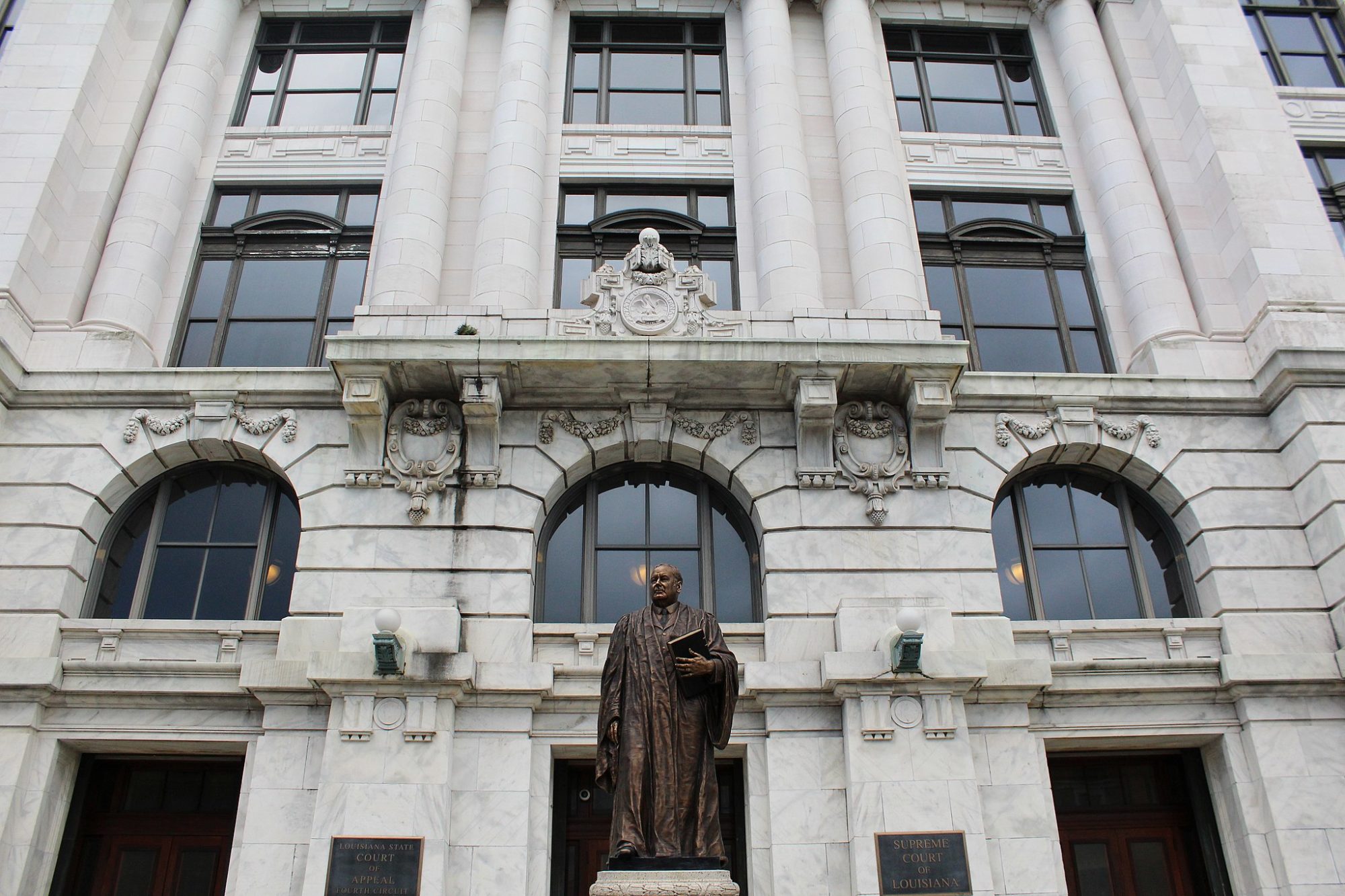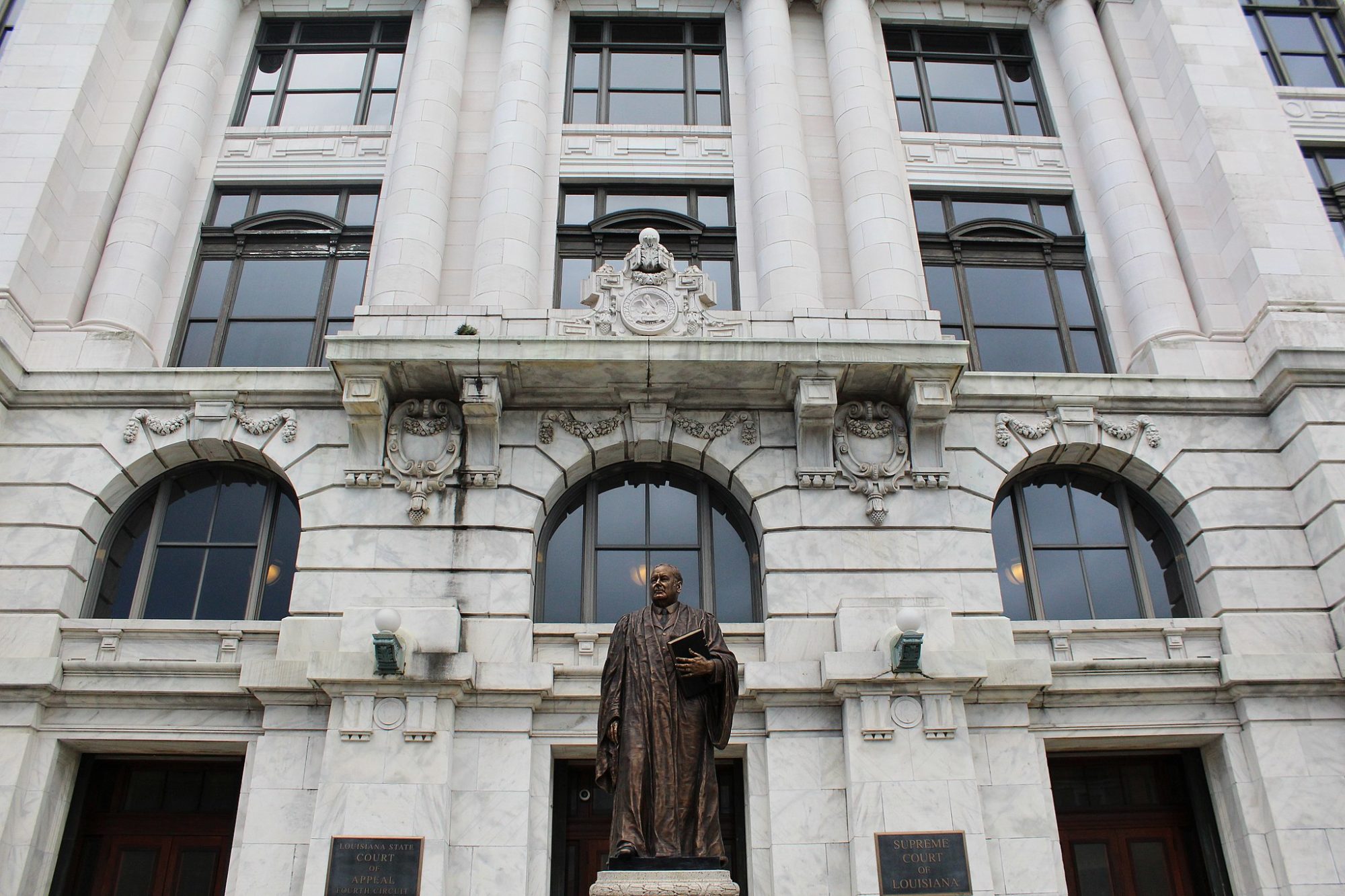“A Weapon by the State to Silence Our Voices”
The Cop City arrests near Atlanta show how a buildup of "critical infrastructure" laws across the country threatens to quell protests for environmental justice and police accountability.
Piper French | April 3, 2023
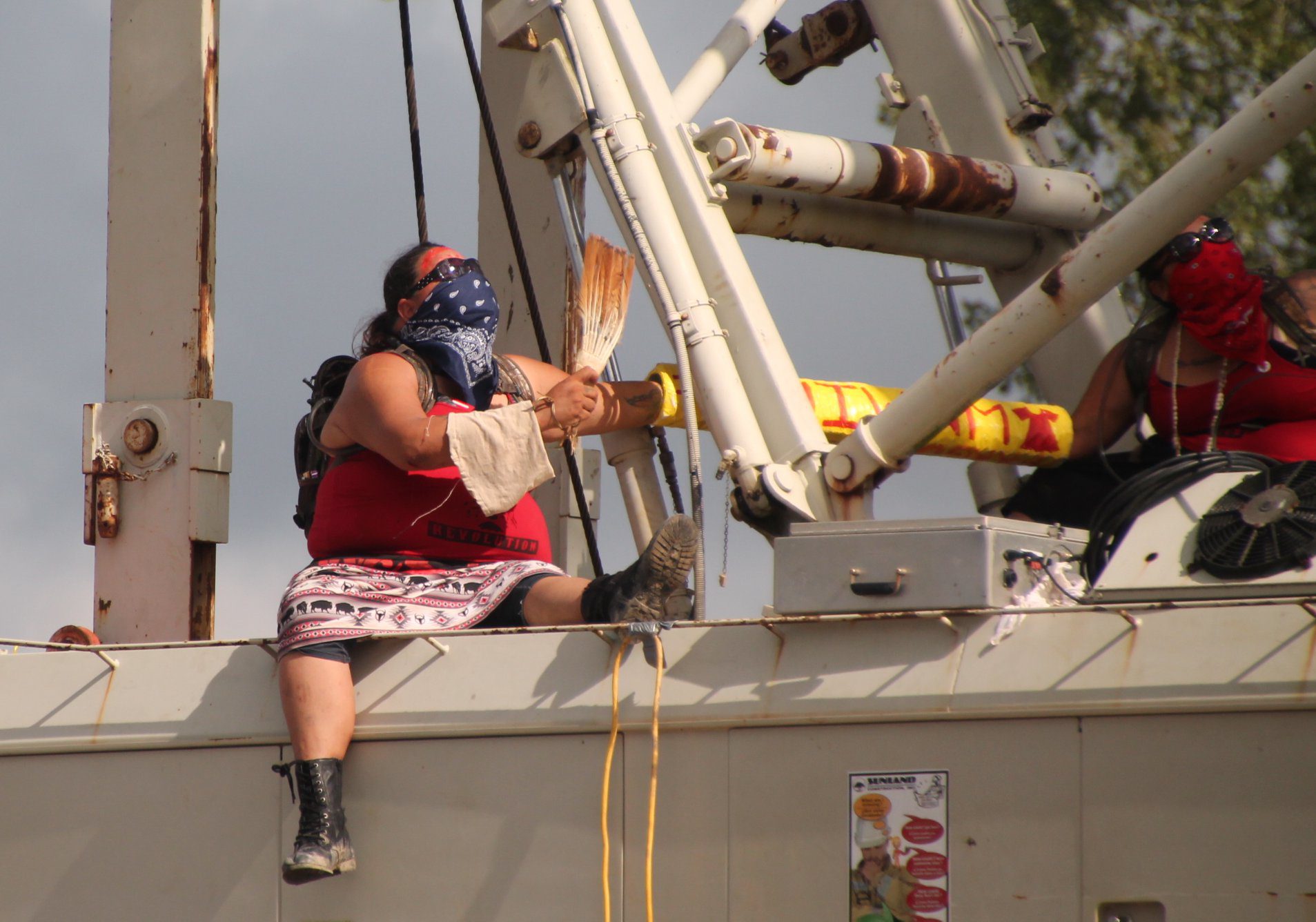

Ramon Mejía was in the swamp for less than a day before he was arrested, but that brief experience made clear the enormity of what he had gone there to protect. Mejía, an Iraq War veteran and anti-war activist from Dallas, had traveled to the Atchafalaya Basin, the largest wetland in the country, to try to prevent Energy Transfer Partners’ construction of a conduit that would connect the company’s infamous Dakota Access Pipeline to Louisiana refineries. He and two other water protectors camped in the swamp the night of August 17, 2018, watching as the sun began to illuminate a beautiful but harrowing scene the next morning. “After the sunrise, you’ll see the birds and vegetation more clearly, the plants and the flowers—and also the destruction,” he recalled. “The construction of the pipeline, how it tore through the land.” Then, the police showed up.
Mejía, his two colleagues, and a journalist who was embedded with the group were arrested under Louisiana’s newly minted ‘critical infrastructure’ law, which makes nonviolent protest near oil, gas, electrical, and other forms of infrastructure a felony and ratchets up the punishment associated with these actions. Such laws have proliferated across the country in the last five years and are now on the books in 19 states due to the efforts of the conservative legislators’ organization known as the American Legislative Exchange Council (ALEC) and the meticulous lobbying of powerful oil and gas companies.
Thus far, states have rarely used critical infrastructure laws against protestors. Until late last year, there was only one other known instance, against Greenpeace protestors in Houston. Nobody has ever been convicted under them.
But the arrest of more than 40 activists in Georgia between December 2022 and early March may signal a turning point, researchers who track these laws say. The activists were protesting the installation of a training center in the Atlanta forest known as ‘Cop City’ and the destruction of one of Atlanta’s vital green spaces.
The activists, many of whom are still detained, were charged under Georgia’s domestic terrorism and critical infrastructure law. Their arrest warrants, issued by county and local police and the Georgia Bureau of Investigations, don’t accuse the vast majority of them of any specific crimes beyond trespassing, but rather for “participating” with others who have allegedly engaged in far more serious offenses such as arson and discharging firearms. “The arrest warrants are broad and generic and certainly don’t have any individualized facts or information tied to them,” said Lauren Regan, the director of the Oregon-based Civil Liberties Defense Center, which has been coordinating legal support on the ground and will be representing a number of the protesters individually. “They’re basically saying, ‘Because you were wearing black or because you had mud on your shoes or because you had a jail support number written on your arm, you’re guilty for any crimes that anyone else potentially committed.’”
The charges against the Georgia protesters illustrate how anti-protest legislation is wielded to quash both the movement for police accountability and the fight for environmental justice. The goal is not necessarily to win in court but to levy charges of such extreme consequence against protestors that it effectively quells dissent.
“One of the ways that people have an impact on what’s happening in their communities or in their country outside of voting are things like protesting,” Rico Sisney, one of the Greenpeace protesters arrested in Houston, told Bolts. But when you add the risk of steep penalties and felony charges that accompany critical infrastructure laws, he said, “there’s a lot of people who might have considered participating because it’s like an issue that really matters to them—but they can’t take that additional risk. And that’s 100 percent the goal.”
Critical infrastructure laws represent a backlash to Indigenous-led protest movements, which have stopped or delayed the equivalent of at least a quarter of yearly emissions in the U.S. and Canada, according to a 2021 report by the Indigenous Environmental Network.
The first critical infrastructure laws were proposed and passed following the success of protesters at Standing Rock in temporarily halting the Dakota Access Pipeline, said Emma Fisher, the deputy director at Climate Cabinet, an advocacy and lobbying organization focused on climate change legislation. Fisher co-authored a report on critical infrastructure laws last year. “[Bill author] Rep. Scott Biggs of Oklahoma directly cited North Dakota’s Dakota Access Pipeline protests, acknowledging that anti-pipeline demonstrations have succeeded and therefore the pipelines haven’t been built,” Fisher told Bolts. “That direct line is clear.”
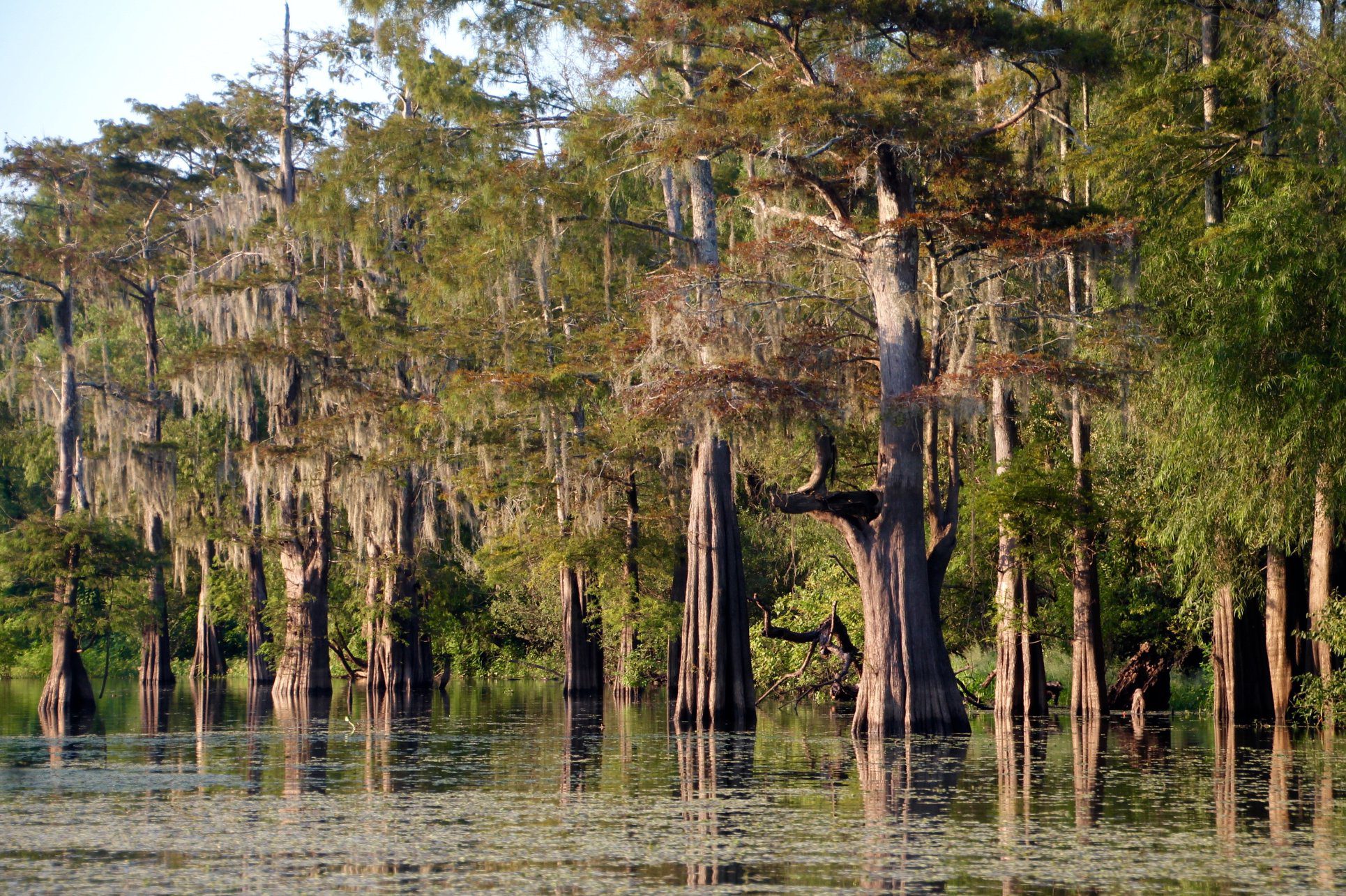

When that bill passed in Oklahoma, ALEC took note, drafting a model bill it dubbed the ‘Critical Infrastructure Protection Act.’ Like the Oklahoma law, the model bill had two key components that would become characteristic of nearly all critical infrastructure laws. First, it turned conduct that would have previously been a misdemeanor into a felony—and jacked up the consequences to match. “One of the problems with these really high penalties is, if you’re charged, even if you know you’re innocent, do you really want to risk going to trial on it?” said Nick Robinson, a senior legal advisor at the International Center for Not-for-Profit Law (ICNL), which maintains a comprehensive anti-protest law tracker. “That trial process will take a long time—but also, let’s say you did lose, you’d face potentially a lot of time in prison. And so some people might feel pressured into just taking a plea.”
“One of the most important takeaways from our research is that these bills are intentionally vague,” Fisher said. “That is causing a chilling effect for protesters and for prospective demonstrators because people are not sure how much danger they might be in.”
Furthermore, the legislation established the concept of ‘vicarious liability,’ leaving organizations potentially on the hook for the alleged actions of even loose affiliates. “It broadens the net, both in who can be liable but also who law enforcement can investigate and potentially arrest and prosecute—whether or not a court ever finds them liable,” said Robinson.
Connor Gibson, a Denver-based fossil fuel opposition researcher who has become an expert on critical infrastructure laws, says they have a compound chilling effect. “Not only will they have activists who are aware of the potential felony charges and how that could really screw up their life, even if they don’t get convicted, but they are sending a message to all these organizations like, ‘Hey, if anybody you were ever affiliated with gets charged under one of these laws, we’re going to go after you for $100,000 and we’re going to sue you into the ground.’”
ALEC may have provided the language, but the country’s biggest oil and gas manufacturers and associations have worked behind the scenes to get state lawmakers across the country on board with critical infrastructure laws. “The tip of the spear is really the AFPM,” Gibson said—the American Fuel and Petrochemical Manufacturers, a powerful trade organization that represents companies such as Koch Industries, Chevron Corporation and ExxonMobil, among others.
While support for critical infrastructure laws has overwhelmingly fallen along party lines, with Democratic governors vetoing bills in Minnesota and Louisiana, in 2019, Democratic legislators backed them in Illinois and Wisconsin after Koch Industries lobbied to get the trade unions on board. Ultimately, Wisconsin’s Democratic governor signed the bill into law.
Even if these laws have only very rarely been invoked by police, in the wake of the 2020 racial justice uprising, and as the fight for environmental justice continues to intensify, activists and researchers alike fear they could be trotted out and deployed with increasing frequency.
“The threat is real,” said Gibson. “The most dire consequences have not yet been played out.”
Bill Quigley, a Loyola law professor who represents Mejía and the other protesters charged in Louisiana, warned that “the idea of terrorism… is becoming more and more common against environmental protesters and people who oppose the police.” He added, “I think the idea is to capture the emotion that people felt after 9/11 and to apply it to people sitting in trees, for goodness sake.”
Just before sunrise on September 12, 2019, Rico Sisney and 10 other Greenpeace protestors rappelled down the Fred Hartman Bridge in Baytown, Texas. Suspended hundreds of feet above the Houston Ship Channel, they unfurled a series of brightly-colored banners over the country’s largest fossil fuel thoroughfare, shutting down ship traffic for an entire day.
Sisney hung there for over 12 hours, reading from Octavia Butler’s Parable of the Talents. “Looking at a waterway that has no ship traffic and just has dolphins splashing around, and seeing a literal sunset on oil infrastructure behind me,” he recalled, “counterintuitively, it was really, really peaceful.”
That sense of tranquility ended abruptly when officers began extracting the protestors one by one as night fell. They were taken to shore, where Sisney said a group of hostile onlookers had gathered and began heckling them, tossing out racial slurs as they passed. The demonstrators were ultimately bundled into police vans and booked into the Harris County Jail.
Soon, the group was informed that they would be charged under Texas’s critical infrastructure law, which had gone into effect on September 1, less than two weeks before the action. The activists had been warned about the new law. “Intellectually, I understood that that was a strong possibility,” Sisney told Bolts. “But then once it hit, it was like, okay, now I can actually feel this and what potential impacts that could have for me and my family and my community. “
For Sisney, a felony conviction would have compounded the racist assumptions and police scrutiny he already faces just for being Black. “I don’t have any criminal convictions on my record,” he said, but “In the many times I’ve been stopped by police, the first assumption is not only do I have charges but I have active warrants. I think it hits differently for Black people in America.”
The critical infrastructure charges against Sisney and his fellow protestors didn’t stick. Six months after the action, prosecutors downgraded the charges to a misdemeanor count of obstructing a roadway, with a maximum penalty of 180 days in jail and a $2,000 fine. But there have been consequences nonetheless. Sisney said that some of his fellow defendants lost out on job opportunities. They were told that they couldn’t be arrested again—and if anyone was, it would have ramifications for everyone in the group. “For a lot of folks who probably would want to participate in other forms of direct action,” Sisney said, people had to “have an entirely different risk assessment for the years after the charges.”
“Which is sort of the goal right of critical infrastructure laws in the first place,” he added, “to make the most active people inactive for as long as possible—and the most active organizations inactive.”
Karen Savage, an independent investigative journalist, had been embedded with the L’eau Est La Vie water protectors for months, reporting on their attempt to stop the construction of the Energy Transfer crude oil pipeline in the Louisiana wetlands. She had taken photographs, documented life in the swamp, and published an exposé in The Appeal on the pipeline company’s use of off-duty state law enforcement officers as private security guards. She knew what she was doing was risky, but she and the water protectors had written permission from one of the swamp landowners to be there, while the company had actually gone ahead with pipeline construction in violation of the owners’ wishes. If anyone was trespassing, she figured, it was them.
On August 18, 2018, around sunrise, Savage joined Mejía, the anti-war veteran who had come there from Dallas, and several other activists in the swamp. Shortly thereafter, they were all arrested. In the holding cell at the county jail, they overheard their charges being read, and realized that police were invoking Louisiana’s new critical infrastructure law.
Quigley, the lawyer, had noticed an immediate shift after the law went into effect on August 1. “They had probably 50 people that got arrested, and all on misdemeanors,” he recalled. “And then the change in the law, all of a sudden, the exact same conduct, there were people getting arrested for felonies.”
“It was definitely apparent that these laws were being utilized as a weapon by the state to silence our voices,” said Mejía.
Later that fall, more water protectors were arrested in the swamp—including herbalist and community organizer Anne White Hat, a member of the Aśke Gluwipi Tiospaye of the Sicangu Lakota, also known as the Rosebud Sioux. White Hat, who is originally from South Dakota, had helped found L’eau Est La Vie; the name—“water is life,” in French—is an intentional call back to the Standing Rock protest to shut down the construction of the Dakota Access Pipeline. “To me, we’re holding down the continuation of that fight up north,” she told Bolts. “We weren’t gonna let them just continue to build this black snake without any resistance.”
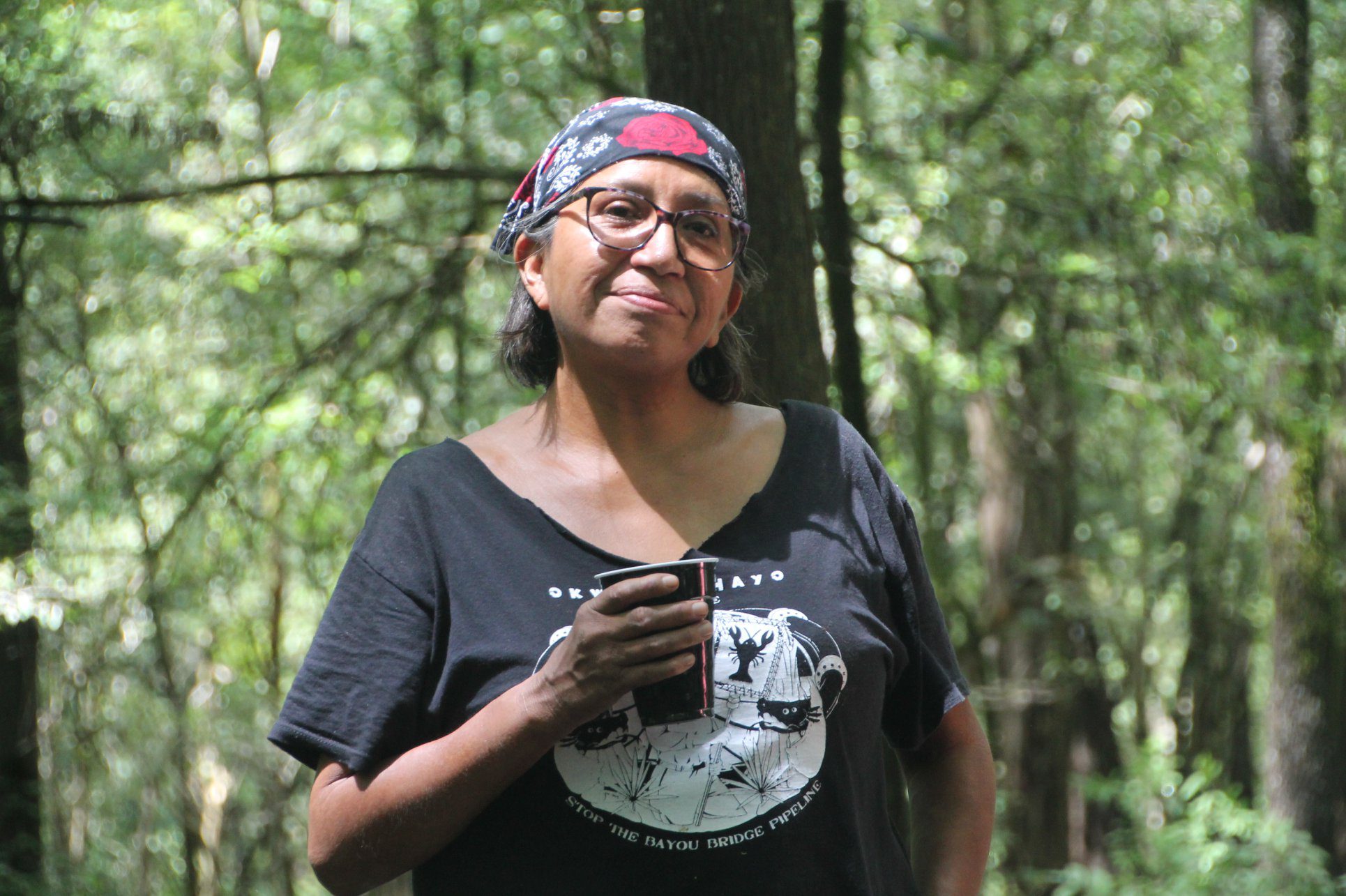

The state had four years to decide whether to move forward with its case, and Savage and the 16 L’eau Est La Vie protesters arrested under the law lived under the threat of critical infrastructure charges for nearly three years. As a single mother, White Hat was fearful of what would happen to her three children should she go to prison. “It’s a very heavy burden to bear,” she said. “I was just hyper-aware of [the fact that] they could formally charge us any day.” She tried to embrace nake nula waun—a Lakota expression describing a state of constant readiness. One night, U.S. marshals came to arrest someone down the block from her in New Orleans, and she woke up to a reverberating pounding noise. “I shot straight up in bed and I was like, ‘Oh, my god, is this happening right now?’” she recalled.
“It kind of hit me maybe in November of that year, like, ‘Wow, that’s 10 years in a Louisiana prison,’” Savage said. Fearful of risking another arrest and having her bail revoked, she stayed home during the January 6 attack on the Capitol, and barely covered the 2020 racial justice uprising. “It did impact my reporting,” she said.
During this time, Mejía, Savage, and White Hat, the co-founder of L’eau Est La Vie, filed a constitutional challenge with the assistance of Quigley and a lawyer from the Center for Constitutional Rights, both of whom also served as their criminal defense lawyers. “Certainly they got much more consideration in state, local and federal courts because the Center for Constitutional Rights took up their cause and put literally thousands of hours into this thing,” said Quigley, who estimates that he worked hundreds of hours pro bono on the case himself. Finally, in July of 2021, two years and 11 months after the first arrests, the St. Martin Parish District Attorney announced that he was dismissing the critical infrastructure charges. White Hat said it took another year, until the statute of limitations passed, before she could really relax.
It was the 2017 critical infrastructure law in Oklahoma that was seized upon by ALEC and became the template for other such legislation across the country. But Georgia’s Senate Bill 1 was proposed that same session. Legislators at the time said that the bill, which expanded the definition of ‘domestic terrorism,’ was intended to address mass casualty events, citing the massacre of nine Black churchgoers in South Carolina two years prior. The proposal withered on the vine—until legislators copied and pasted the bill’s text into a different one that passed.
“Fast forward until December of 2022, when the first Atlanta forest defenders were charged with the statute for, in essence, trespassing,” said Regan of the Civil Liberties Defense Center. “It was certainly a far cry from what the legislators stated that their intent was in passing the statute.” The statute mandates a prison sentence of at least five years and up to 35 years for people convicted of disabling or destroying “critical infrastructure, a state or government facility, or a public transportation system.”
Regan said applying the law against the Cop City protesters is far-fetched—but again, convictions aren’t necessarily the point. Just being charged brings stark consequences: the activists were initially denied bail and most are currently detained in the DeKalb County Jail, which is notorious for squalid conditions and allegations of mistreatment by staff. According to Regan, a number of activists have complained about being denied medical care and medication while in jail.
“Even though it’s very unlikely that they’ll ever get a conviction against trespassers for domestic terror, and there are a number of serious faults and failures in the state’s prosecution of land defenders thus far, the most negative consequences are already being forced upon citizens who are normally innocent until proven guilty, ” she told Bolts.
On March 23, the protesters still being held in custody in DeKalb County had their second bond hearing. Nine of the 22 were denied bail again and remain detained as of publication. According to Hannah Riley, an activist in Atlanta, the justifications for denying bail included protesters wearing black, having a jail support number scrawled on their arm, and having mud on their shoes.
Meanwhile, a new crop of critical infrastructure bills in legislatures across the country could increase punishment for protesters, from Idaho to Minnesota to Illinois to North Carolina. Utah’s governor just signed two new infrastructure bills into law last month.
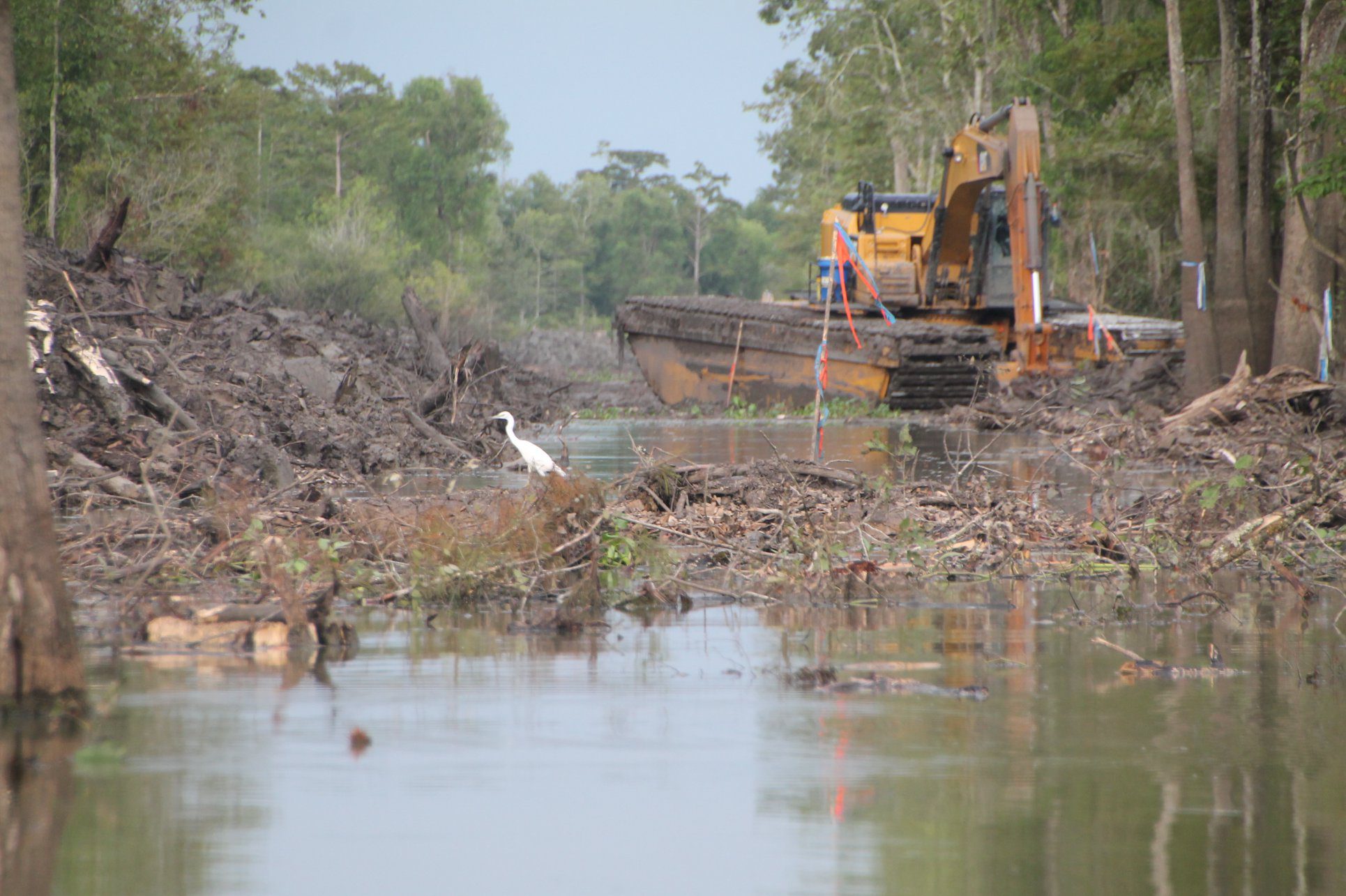

Robinson of ICNL noted many of the new bills are somewhat distinct from the previous crop of critical infrastructure laws in that they are allegedly motivated by recent white supremacist attacks on energy substations and are not necessarily based on the language in the ALEC model bill; instead many build off existing law. Nevertheless, he said, “we and others are concerned that even if these bills are being enacted in response to attacks on electric substations, which we do not support in any way—it’s criminal already under the law—that if they’re overly broad or vague, that they could be used in other context against protesters.”
Many state legislatures are also considering broader anti-protest bills at the moment. Cop City is the focal point for that convergence, but there are two bills before the Georgia state legislature that advocates worry could quell protest: a critical infrastructure bill inspired by recent substation attacks, and an anti-riot bill. The punishment for violating either would be up to 20 years in prison.
For White Hat, looking to the past has helped her steel herself against the uncertainty of this new landscape for protest. When she thought about the importance of the land she was defending, what came to mind was a late mentor of hers from Baton Rouge, a Choctaw woman who would come back to the Atchafalaya each year to go crawfishing. Her father had told her stories about how he had stood up against Dow Chemical’s pollution of the swamp back in the 1950s. “I feel connected to that,” White Hat told Bolts, noting that there has been a long history of Indigenous resistance to environmental degradation. “What is different and what is new is that the oil industry and South Louisiana hasn’t experienced this level of an organized resistance movement,” she said. “Ever.”
Sign up and stay up-to-date
Our weekly newsletter on the local politics of criminal justice and voting rights



